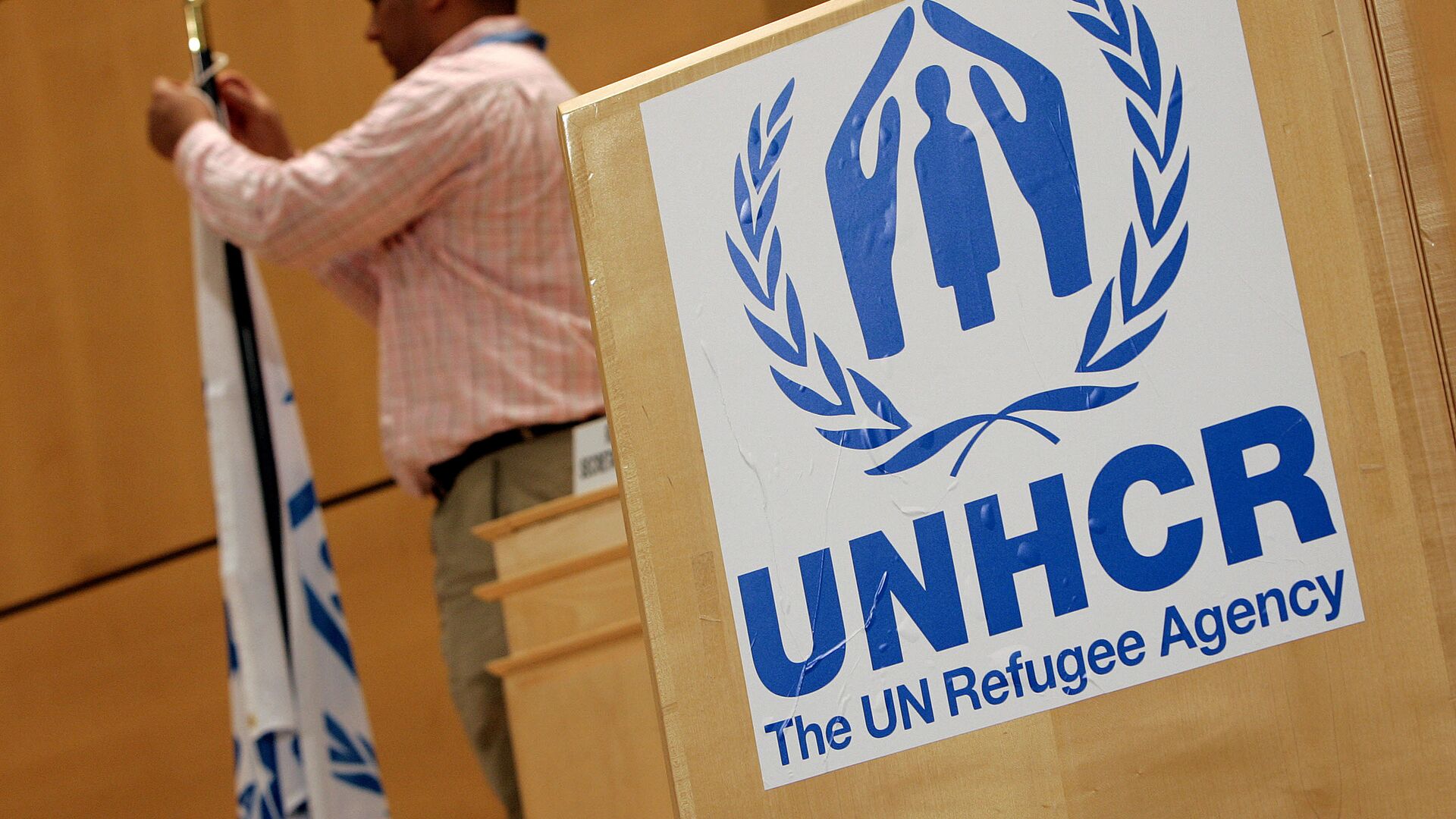UNHCR Condemns Deadly Attack on Red Sea Afar Refugee Camp Amid TPLF’s New Eastern Ethiopia Offensive
00:57 GMT 19.02.2022 (Updated: 01:03 GMT 19.02.2022)

© AFP 2023 / FABRICE COFFRINI
Subscribe
In late January, the Tigray People’s Liberation Front (TPLF) launched a new operation into neighboring Afar state, claiming to be chasing down Eritrean-backed militias responsible for attacks in Tigray. Weeks earlier, Ethiopian forces ended the TPLF’s monthslong occupation of Amhara and Afar.
Speaking at the UN offices in Geneva, Switzerland, on Friday, UN High Commissioner for Refugees (UNHCR) spokesperson Boris Cheshkirov said that an Eritrean refugee camp in Afar had come under attack by gunmen, who killed five camp residents and sent thousands fleeing to safety.
“We condemn the attack on the refugee camp and reiterate the call for cessation of hostilities to avoid further destruction and potential loss of life for refugees and Ethiopians alike, and so that much needed humanitarian assistance can reach them,” Cheshkirov said.
The attack happened on February 3 at the Barahle refugee camp, a camp for ethnic Afar Eritreans that opened in 2009 amid Eritrea’s then-ongoing war with Ethiopia, Cheshkirov said. However, UNHCR was informed about the attack only after refugees fleeing it arrived in the Afar capital of Semera. Other refugees are believed to have fled in other directions, possibly towards the towns of Afdera and Dabure, more than 200 miles from Semera.
In addition to the killings, the gunmen also looted the camp and stole both refugees’ belongings and abducted several women.
"I had never seen anything like that," Mahamooda Ahmed, a refugee who fled the camp to Semera, told AFP for a Friday article. "I had never seen soldiers open fire on civilians. There were no soldiers for them to fight. It was civilians, including women and children. And they were using very heavy weapons."
Ahmed said he was missing two of his seven children, as well as one of his two wives, who got separated from the rest in the scramble after the attack began.
A March 2018 profile of the camp by UNHCR identified more than 12,000 refugees living in the camp, 63% of whom were under the age of 18. It is located near the border with Tigray.
The UNHCR report didn’t mention the identity of the attackers. The region has become a war zone once again after the TPLF launched a new offensive into Afar in late January, claiming it was chasing elements of a group called the Red Sea Afar Force. According to the UNHCR, the TPLF’s recent incursion into Afar has displaced more than 300,000 people.
Kindeya Gebrehiwot, a spokesperson for the TPLF, told AFP that Ethiopian government officials were “full of lies” and that Eritrean refugees “were not attacked.”
"Our forces only targeted armed troublemakers from the Afar government and Eritrean mercenaries," the spokesperson said.
Interestingly, on January 28, just a few days before the attack on the Barahle refugee camp, the Red Sea Afar Human Rights Organization (RSAHRO) sent a letter to UNHCR Filippo Grandi expressing their fears about the safety of Red Sea Afar in the area.
"Our local sources have confirmed that TPLF forces are firing heavy artillery into the town indiscriminately in which the refugee camp has been hit and refugees are dispersed", the letter said, according to the independent outlet Ethiopian Citizen.
"We are now alarmed of the ongoing war and left without receiving any information in the last three days from the camp. We also need to bring to your attention the content of the Tigray press release that contains a clear intent to carry out a genocidal campaign on the refugees under pretext of the unknown Red Sea Afar forces," read the letter from RSAHRO.
"It is historically known that the Afar in Eritrea call themselves Red Sea Afar people, and RSAHRO is deeply concerned that the TPLF will use this type of wordplay to cover up their military adventure in that specific area and commit massacres against unarmed refugees,” the letter continued. Indeed, the TPLF’s announcement of the Afar offensive claimed the Red Sea Afar Force was backed by Eritrea, which is allied with the Ethiopian government against the TPLF.
However, the very real Afar Special Forces have been the primary group defending Afar from the TPLF. French radio station RFI spoke with several of the militia members, reporting on Thursday that they were fighting the TPLF without the help of the Ethiopian National Defense Forces.
Abdileh Ali Nour, head of security in Berhale district for the ASF, said the district had been totally overrun by the TPLF. “It's true that we fell back because of their superiority. But we will never give up our territory. The situation can be reversed from one day to another. If they lose their artillery and their tanks, for example, we could regain ground and our land.”
London-based human rights monitor Amnesty International published a damning report on Thursday accusing the TPLF of mass murder, gang rape, and looting, among other offenses, in several towns in Amhara that it occupied last year.
The TPLF has been fighting the Ethiopian government since November 2020, when it launched a sneak attack on Ethiopian troops in Tigray. Last summer, the group invaded Amhara and Afar, making a drive on the capital of Addis Ababa, where it hoped to overthrow Prime Minister Abiy Ahmed with US endorsement. Since coming to power in 2018, Abiy has made moves to weaken the TPLF’s once-domineering power over Ethiopian politics and earned the lasting enmity of Washington by ending a 20-year-long war with Eritrea started by the TPLF.
The 15-month struggle has killed an unknown number of people in three Ethiopian states and driven more than 4 million people from their homes, according to UN estimates. The UN World Food Program estimates some 9.4 million Ethiopians are in need of food assistance.
